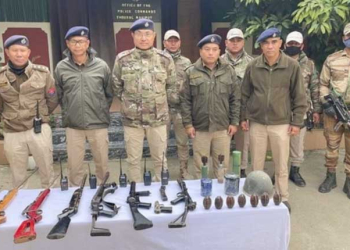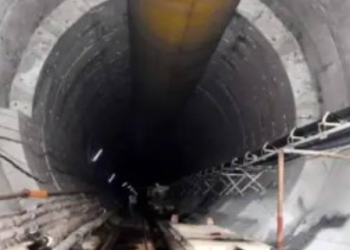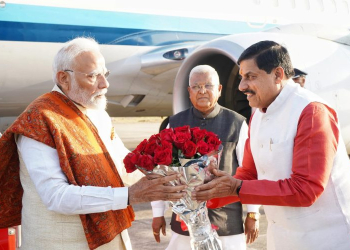New Delhi: Civil Aviation Minister Jyotiraditya Scindia is brooking no nonsense from airlines as he showed on the incident of a disabled boy being prohibited from boarding by Indigo on a Ranchi to Hyderabad flight by immediately ordering a probe.
As he reiterated to IANS, “I have zero tolerance for such behaviour and no human being should go through such a harrowing experience.”
Similarly on the turbulent Durgapur flight recently, he said that the matter is being dealt with utmost seriousness and deftness.
He was quick to add, “Please undersatnd that while I am all for growth imperatives, there is a Laxman Rekha that airlines cannot cross. I have set up many advisory groups and I personally hold these meetings, but we cannot have such instances. I am willing to meet and discuss all such issues in a transparent manner and the rule of law is the same for one and all. Remember that I am a facilitator and am readily available as a problem solver.”
Scindia wants the country to become a global aviation hub and prefers that India flies out passengers directly on non-stop flights to different destinations. He wants Indian carriers to come forward with plans to fly directly to destinations in Europe and North America. At the same time, he would like India to become a launch pad for Southeast Asian and Anzac airlines, so that they can use Delhi and Mumbai as layovers for flying out to Europe and North America.
He said, “We are rapidly building our infrastructure, increasing capacity both on the ground and in the air, so why shouldn’t we push the envelope on this front. Airport leasing, upgradation, more aircraft… we are expanding on all fronts.”
Further, Scindia said that the existing fare caps act as a protector for air travellers as well as airlines and indicated that doing away with the curbs could be looked at once the environment stabilises in terms of passenger traffic and jet fuel prices.
He added, “The underlying credo is growth and those imperatives are available for everyone in this space, but equally there is a level playing field and passenger growth and protection of his rights as a consumer are vital. Domestic air passenger traffic has almost recovered to pre-Covid levels and has crossed the 4 lakh mark on some days in recent times. However, jet fuel prices are at an elevated level and many states have reduced the taxes levied on the fuel.”
As such, Scindia stated that fare capping, which is done on a rolling basis, protects passengers from being charged excessive fares.
With crude prices ramping up and ATF prices going into the stratosphere, fare capping is applicable on a rolling basis for a 15-day cycle, and the situation is monitored by the Civil Aviation Ministry.
Emphasising that the civil aviation space is on the path of finding its feet after being brutally impacted by the coronavirus pandemic, the Minister said it can be considered fine once passenger traffic is stable for a quarter and also the ATF (aviation turbine fuel) price should come down so that the airlines are healthy.
“Fare cap is a protector on both sides, on the upper side and the lower side… as soon as that (stable) period comes into place… I have the least desire to interfere and I need to create a nice feel so that you guys (industry) can play,” Scindia averred.
Very aggressive on cargo traffic, Scindia said that the government will establish 33 new domestic cargo terminals by 2024-2025, which will allow India’s cargo sector to flourish and boom. Pushing reforms in the cargo sector, the Minister said that industry players need to focus on transportation of smaller cargo loads from Tier II and III cities to Metros to achieve the target of 10 million metric tonnes in cargo.
He said this can be achieved by acquisition of smaller size aircraft. To facilitate this, he said 33 new domestic cargo terminals will be established by 2024-2025. He also stressed the need to work on ease of doing business in the cargo sector by making processes paperless, adapting automation, and digitalisation which can make cargo processing rapid.
During the last two years in the midst of the Covid pandemic, the cargo sector has emerged as a promising area not just for Indian aviation, but for global aviation. The Indian cargo sector has witnessed a growth rate of 9 to 10 per cent since 2013-14. During the last two years, the airlines have witnessed 520 per cent increase in cargo revenue.
(IANS)

















